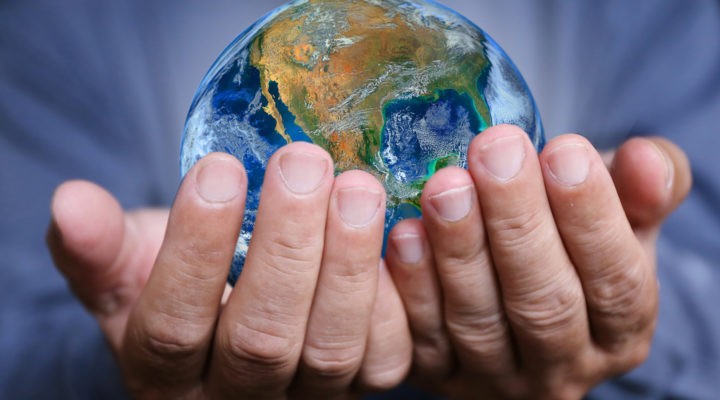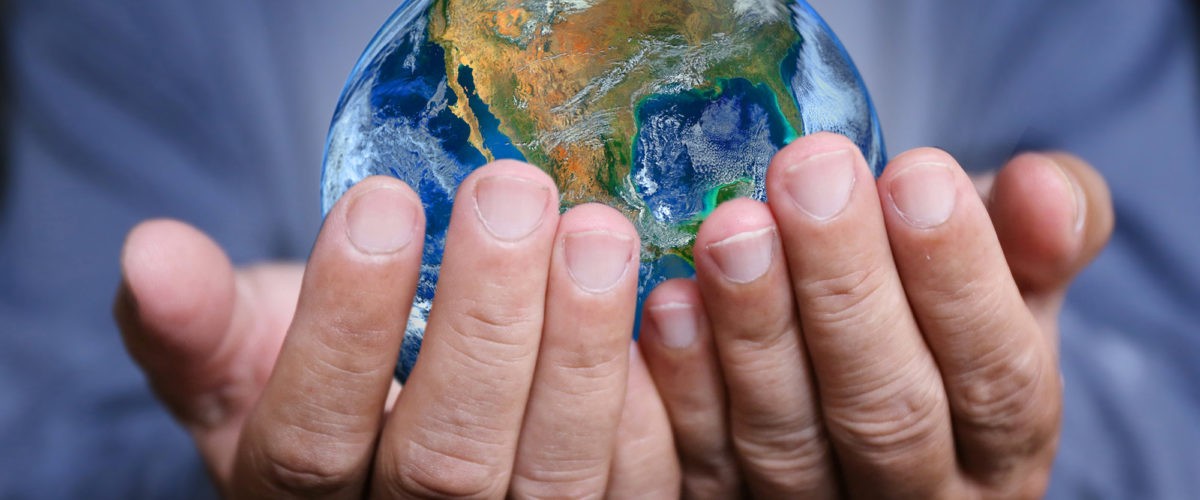While the world stood aghast at apocalyptic images of environmental extremes caused by climate change both in real life and in a new scientific report, United Methodists faced the global challenge with renewed commitment to hope and action.
“The new Intergovernmental Panel on Climate Change report confirms what United Methodists around the world are experiencing every day: extreme weather events, drought, wildfire, flooding, unreliable weather patterns, and loss of species and habitats,” said Jenny Phillips, who coordinates environmental programs for the General Board of Global Ministries, the church’s mission agency.
Indeed, the sixth environmental assessment of the IPCC released Aug. 9 held little news for United Methodist climate advocates, because their church has been involved in what’s now known as “creation care” since the 1980s, according to Jaydee Hanson, former staff member at the General Board of Church and Society. The church’s 1980 resolution denouncing the use of fossil fuels made the UMC the first American denomination to take a public stand against petroleum fuels, said Hanson, who now serves as policy director for the Center for Food Safety, which lobbies for preserving biodiversity and against genetically engineered plants and animals.
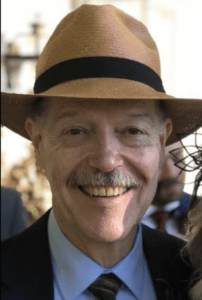
Jaydee Hanson
While United Methodist involvement in environmental issues has been “episodic” sometimes, the UMC still has been present at crucial turning points in creation care ministry, Hanson said. He was the UMC’s representative to the World Council of Churches’ preliminaries to the first Earth Summit held in 1992 in Rio de Janeiro. Subsequently, a United Methodist delegation attended the Rio Earth Summit and was among denominations that provided faith-based support for the formation of the International Panel on Climate, Hanson recalled.
Missed opportunities
Hanson said that both secular and faith-based environmentalists hoped for big changes at the 1992 Earth Summit, but their hopes were dashed soon thereafter.
“Things we needed to be doing in ’92 we’re just starting to do now,” Hanson explained. “The warnings we’ve had now show the most agreement among the scientists there has ever been. There’s no equivocation that climate change is real, and that human activity is causing it. Scientists now have coined the term ‘climate chaos’ because the rate of change is so rapid and so much is happening at once.”
United Methodists from the youngest to the most senior climate advocates responded to the latest IPCC report by urging congregations and individuals not to give in to despair, but to start or continue actions that mitigate humans’ effect on earth’s climate.
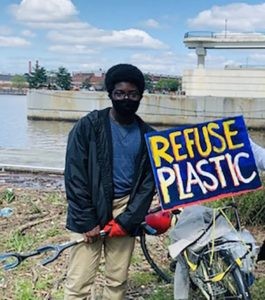
Caleb James
For example, in 2016 Global Ministries began a program called EarthKeepers, which trains United Methodists to lead local creation care projects. One such EarthKeeper, 15-year-old Caleb James of Washington, D.C., said his initial reaction to the IPCC report was to think of the people most vulnerable to the ravages of climate change.
“Young people, people of color and low-income households will be hit hardest by the consequences of climate change,” James said. “This isn’t just about the weather and the environment. It’s about justice, because people of color benefit the least from activities that produce planet-warming gases but suffer the most from the consequences.”
Swift action needed
“The IPCC report is harsh, but not hopeless if we act now to keep below 1.5 degree warming and avoid the grim predictions, especially for people of color and those living in poverty,” James said. “We need to change our human activities in order to preserve God’s creation. We are a part of God’s creation, and if we continue these unsustainable practices, the land God created for us will perish.”
His elders in United Methodist creation care ministry agree with James’ assessment.
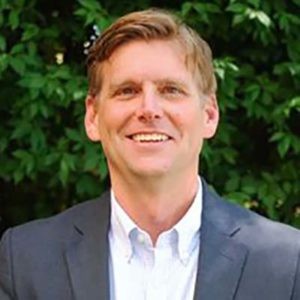
John Hill
John Hill, deputy general secretary of the General Board of Church and Society, also stressed the need for immediate action.
“The IPCC report underscores the urgency of acting swiftly to avoid the worst impacts of catastrophic climate change,” Hill said. “These actions must include rapidly reducing greenhouse gas emissions and scaling up our efforts to support communities already suffering from climate disruption. This report confirms that our window for action is closing and the time for us to act is now.”
No longer a matter of ‘if’
Elizabeth Lee, United Methodist Women’s executive for economic and environmental justice, concurred with Hill’s assessment.
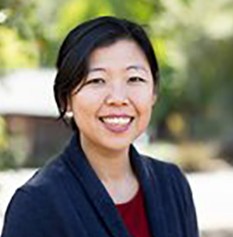
Elizabeth Lee
“The climate crisis is an existential threat impacting all of creation,” she said. “It is no longer a matter of ‘if,’ it is a question of ‘how’ and ‘when’ we will see the catastrophic impact of the climate emergency. It is incumbent on all people, from all political affiliations, religions and groups, to push for a collective switch from fossil fuels to renewable energy. This transition must be equitable and just, but there are few things as dire as this situation we find ourselves in today.”
Members of the coordinating team for UMC Creation Justice Movement, a volunteer organization of climate advocates, also emphasized hope and action as the remedies for the IPCC report’s dire predictions.
“The IPCC report confirms everything we’ve been seeing around the planet,” said Cara Fleischer, a member of St. Paul’s UMC in Tallahassee, Fla., who is preparing to attend the global climate conference, COP26, in Glasgow, Scotland, in November. “The report fuels the absolute necessity for action.”
Called by God to make a difference
Retired pastor Paul Slentz, whose last assignment in the Tennessee Annual Conference was with creation care ministry, said the IPCC report made him think about how in history “the church has been called to respond to what’s going on in the world right now.”
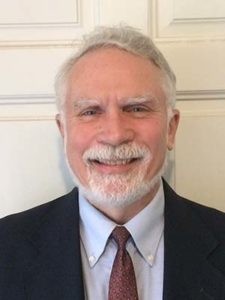
Paul Slentz
“I think this is one of those clear instances where the church is being called by God to respond to this crisis that is harming people — the most vulnerable people, poor people, indigenous people, people of color — the people Christ called us to help,” he said.
Slentz characterized the climate crisis as “not a peripheral issue. It’s part of what it means in this time and place to love God and love our neighbor.”
What churches can do
Confronting the multiple challenges of climate change outlined in the IPCC report can be overwhelming, acknowledged Cathy Velasquez Eberhart, a Minnesota United Methodist who chairs UMC Creation Justice’s coordinating team.
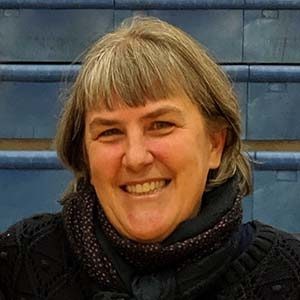
Cathy Velasquez Eberhart
Eberhart said her initial work on creation care led her to other United Methodists who were concerned for the planet’s future. From her local church through the Minnesota Annual Conference, she joined with others to organize what has become the UMC Creation Justice Movement.
“Our desire was to build a deeper network throughout the denomination connected to what was already happening,” Eberhart said. “Now I don’t slip into despair; it’s like, ‘Oh, yeah, we’ll just keep working — making gardens, ridding ourselves of plastic, doing advocacy work in states, and building a powerful movement.’”
Eberhart said she hopes the IPCC report will give United Methodists and all people of faith clarity on the urgency of the climate crisis. “The report is dire, but we see people rising to the challenge,” she said. “Don’t try to do this work alone. It’s heavy work. It’s so much more joyful to work together.”
Cynthia B. Astle is a veteran journalist who has covered the worldwide United Methodist Church at all levels for more than 30 years. She serves as editor of United Methodist Insight, an online journal she founded in 2011.
Related articles:
Christians and climate change: A chance to take the Bible seriously | Analysis by Chris Conley
On climate change, the political divide has widened as more Americans overall express concern
Climate change is heating up the terrorist conflict in Africa’s Sahel region
I wrote about climate change; now I’m hearing from mean Christians | Opinion by Susan Shaw

